In the world of small, furry pets, chinchillas stand out as delightful and charming companions. These adorable creatures have gained immense popularity among pet owners, and one of the primary concerns for anyone considering adopting a chinchilla is understanding their lifespan. How long do chinchillas live?

What factors can influence their longevity? In this comprehensive guide, we will delve into the intricate details of the Chinchilla Lifespan, exploring the science, care, and interesting facts surrounding these fluffy creatures.
Chinchillas, scientifically known as Chinchilla lanigera and Chinchilla brevicaudata, are small, rodent-like mammals native to the Andes mountains of South America. They are renowned for their luxuriously soft fur, which has made them a target for the fur trade. Fortunately, many chinchillas are now bred in captivity as pets. Let’s delve into the essential details of their lifespan.
Chinchilla Lifespan: How long do they live on average?
Chinchillas are known for their relatively long lifespans compared to other small pets. On average, they live for 15 to 22 years in captivity. However, with proper care, some chinchillas have been known to reach the ripe old age of 30! Their wild counterparts have a shorter lifespan, typically ranging from 8 to 15 years.
Factors Influencing Chinchilla Lifespan
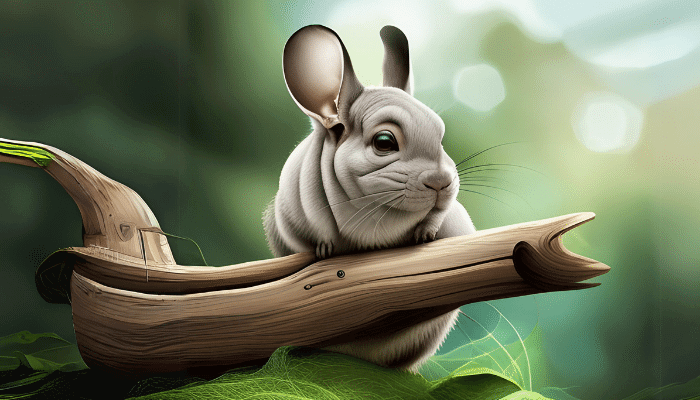
Several factors play a crucial role in determining how long your chinchilla will live. It’s important to understand and address these aspects to ensure your furry friend enjoys a healthy and extended life.
Diet and Nutrition: Just like humans, chinchillas require a balanced diet to thrive. They primarily eat hay, pellets, and occasional treats. Ensuring a proper diet is essential for their longevity. A deficiency in essential nutrients can lead to health issues that may reduce their lifespan.
Housing and Environment: Chinchillas are sensitive to temperature and humidity. They thrive in a dry and cool environment. High temperatures or excessive humidity can lead to heatstroke and stress, which may adversely affect their health.
Hygiene and Grooming: Chinchillas have dense fur that needs regular grooming to prevent matting and overheating. Poor grooming habits can lead to fur and skin problems, reducing their lifespan.
Social Interaction: Chinchillas are social animals and thrive in the company of their kind. Keeping them alone for extended periods can lead to loneliness and stress, potentially impacting their longevity.
Veterinary Care: Regular check-ups with a veterinarian who specializes in small mammals are essential for detecting and addressing health issues promptly. Early intervention can significantly impact the chinchilla’s lifespan.
Interesting Facts About Chinchilla Lifespan

Chinchillas are not only known for their impressive longevity but also for a few fascinating quirks that contribute to their unique lifespan:
Nocturnal Lifestyle: Chinchillas are primarily nocturnal creatures. Their nighttime activity patterns are adapted to avoid daytime predators in their native habitat. This behavior contributes to their overall well-being and longevity.
Teeth That Never Stop Growing: Chinchillas have teeth that continuously grow throughout their lives. Regular chewing on hay and other suitable materials helps keep their teeth at a manageable length. Dental problems can significantly impact their lifespan if left untreated.
Precocial Offspring: Chinchilla babies, known as kits, are born in a precocial state. This means they are relatively developed at birth, with fur and open eyes. This adaptation allows them to thrive in their harsh native environment, contributing to their long lifespan.
Absence of Sweat Glands: Chinchillas lack sweat glands, which makes them susceptible to heatstroke in hot environments. To avoid this, they take dust baths to cool down, which is both cute and functional.
Aging Gracefully: Chinchillas show little signs of aging until the very end of their lives. This means their decline in health and vitality may be sudden, underscoring the importance of regular check-ups and attentive care.
Age Milestones in a Chinchilla’s Life

A chinchilla’s life is divided into several stages, each with its unique characteristics:
Baby Chinchilla (0-6 Months): These little bundles of joy are most active and curious during this period. Proper care during this time sets the foundation for a long and healthy life.
Adolescent chinchillas (6-12 Months): As they grow, chinchillas become more independent but still require proper nutrition and care. Dental issues can also start to manifest during this stage.
Adult Chinchilla (1-7 Years): This is the prime of a chinchilla’s life. They are active and playful, but it’s also when they may start experiencing some age-related health issues.
Senior Chinchilla (7+ Years): During their senior years, chinchillas may slow down and become more susceptible to health problems. Extra care and attention are necessary.
Common Causes of Early Death in Chinchillas
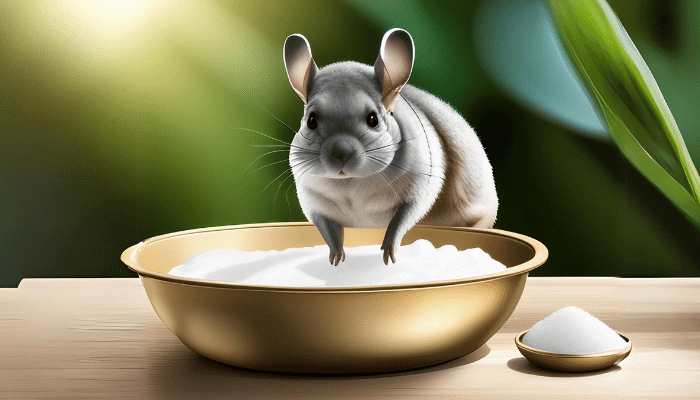
With proper care and attention to environmental factors, chinchillas can live up to 15 years or more. Unfortunately, some chinchillas don’t reach their full potential due to common causes of early death.
The most common reasons for shorter lives include dental problems, inadequate housing, and a poor diet. To ensure a long and healthy life for your chinchilla, it’s important to invest in proper healthcare, maintain a suitable habitat, and provide a balanced diet.
Strategies for Increasing a Chinchilla’s Lifespan
Chinchillas can live for anywhere from 10 to 20 years with proper care. However, there are strategies you can implement to increase the lifespan of your chinchilla even more. These can range from providing a proper habitat and diet to ensuring your chinchilla receives regular check-ups from a trusted veterinarian.
By taking these steps and following other pet care tips, you can help your chinchilla live a long, happy, and healthy life.
Conclusion
In conclusion, chinchillas are unique and lovable pets that can bring joy to any household. With proper care and attention, they can live long and fulfilling lives of up to 20 years or more. By understanding the factors that impact their lifespan, such as diet, exercise, and living conditions, and taking necessary steps to increase their longevity, you can ensure your chinchilla has the best chance at a healthy and happy life.
Remember to also be aware of common causes of early death, signs that it may be time to say goodbye, and strategies for keeping your pet healthy and happy. By following these tips and showing love and care to your chinchilla, you can create a strong bond that will last a lifetime.
FAQs About Chinchilla Lifespan
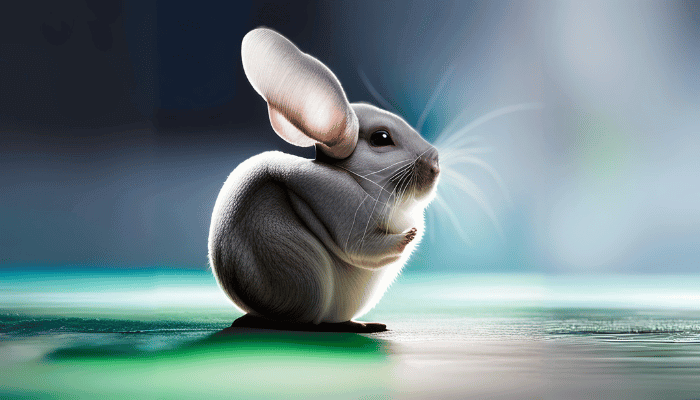
How long do chinchillas typically live?
On average, chinchillas can live for up to 20 years with proper care and attention.
What is the typical lifespan of a wild chinchilla?
Wild chinchillas generally live for 8 to 15 years, with their shorter lifespan primarily attributed to the challenges of surviving in their natural habitat.
Do male and female chinchillas have different lifespans?
Generally, there is no significant difference in lifespan between male and female chinchillas. Both can live for 15 to 22 years or longer with proper care.
What factors influence a chinchilla’s lifespan?
Diet, exercise, and living conditions are all significant factors that can impact a chinchilla’s lifespan.
Can chinchillas live longer in captivity than in the wild?
Yes, chinchillas tend to live longer in captivity due to the controlled environment, a consistent food supply, and protection from predators.
How can I extend my chinchilla’s lifespan?
You can extend your chinchilla’s lifespan by providing a balanced diet, a suitable living environment, regular grooming, and social interaction. Regular veterinary care is also crucial for early detection of health issues.
How does a chinchilla’s diet affect its lifespan?
A balanced and nutritious diet is critical for promoting a chinchilla’s overall health and longevity. Chinchillas should primarily eat hay or pellets, with occasional treats in moderation.
Avoid feeding them foods high in sugar or fat, as these can lead to obesity and other health issues that can decrease lifespan. Consult a veterinarian for specific dietary recommendations for your chinchilla.
Is there a record for the oldest chinchilla ever recorded?
While there isn’t an official record for the oldest chinchilla, some pet owners have reported their chinchillas living up to 30 years with exceptional care.
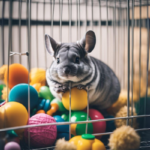
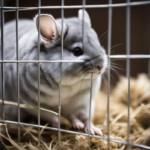

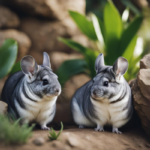



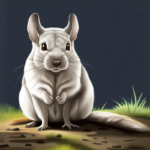

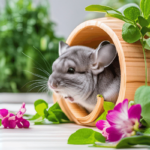

1 thought on “Chinchilla Lifespan: Discover How Long Chinchillas Live”